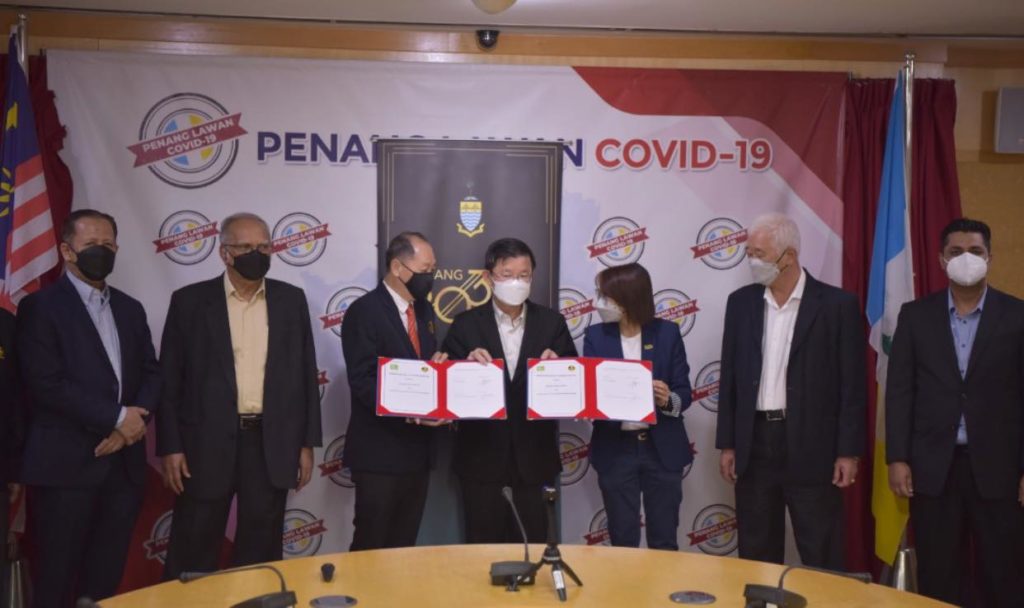
PENANG, May 10 – Penang Green Council and the Federation of Malaysian Manufacturers (FMM) Penang on Tuesday signed a Memorandum of Understanding aimed at further facilitating the transition of the state’s manufacturing industries to the digital age and a green economy.
Speaking during the signing ceremony here today, Penang Chief Minister Chow Kon Yeow , who is also chairman of the council, said the move, aimed at a more sustainable and productive industry, was in line with the Penang Green Agenda (PGA), which sets out the state’s agenda to achieve its Sustainable Development Goals by 2030.
Under the deal, FMM will be encouraging its stakeholders to be involved in Green Industry while strengthening the key actors along the entire value chain. This is expected to be achieved through the adoption of the Circular Economy (CE) which is based on the principles of eliminating waste and pollution,
keeping products and materials in use, and regenerating the natural system.
“CE is a way for us to transform our throw-away system, and to tackle global challenges like
climate change, biodiversity loss, waste, and pollution. Overall, CE encapsulates the spirit of sustainable consumption, energy efficiency, effective waste management and emission reduction.
“Integration of CE practices does not inhibit the manufacturing processes. Rather, it promotes business operations that can achieve growth while ensuring environmental sustainability.”
He said that as part of the state’s CE project, the Circular Economy and Industry Programme (CEIP): Platform for Partnerships and Capacity Development, has been launched to focus on fostering the creation of a CE in the electronics and electrical (E&E) sector, a significant contributor to the state’s manufacturing industry.
“The state has been exploring renewable energy and energy efficiency (RE & EE) as well
as a sustainable waste management system. At the national level, some examples
include KASA’s Malaysia Plastics Sustainability Roadmap 2021-2030 and the Malaysia
Renewable Energy Roadmap (MyRER) launched by KeTSA.
“Even at the international level, the EU is planning for a Carbon Border Tax and this
means anything that enters Europe which is not classified as low carbon, will be imposed
a tax. It is also important to note that such a green growth within Penang will see a great
need for labour skills to deliver this green transition.”
Chow said the project is also aimed to reduce the environmental impacts of production and consumption
within the E&E sector; to improve the sector’s productivity, environmental performance
and competitiveness; and to transform Penang into a Green Industrial Hub.
“CE has become the catalyst to drive innovation and technological growth. Hence, if the
technologies and innovations of Industry 4.0 can accelerate the transition of most
industries to circular economy, we can nurture an innovation-driven industrialization.
–WE